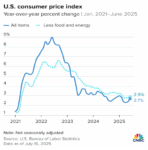Stocks represent the "tokenized" valuation of companies. Stocks are purchasable and can be transacted. By purchasing shares in a company, one will effectively come to own a piece of that company. Therefore, if the said company realizes profits, the share holder will receive some of these profits. If losses result from the company activity, the shareholder will shoulder some of them as well.
Ownership is directly proportional with a number of shares owned. If someone owns 20% of the shares of the company, he/she is entitled to 20% of the profits/losses realized by the said corporation.
Stocks are some of the most widely traded assets and they are an integral part of every investment portfolio. Statistically, they have outperformed most other investment vehicles over longer periods of time.
Stocks
Where do stocks come from?
Stocks are issued by companies wishing to raise money to further their development. Initial Public Offerings (IPOs) are used to this end.
While most high-profile stock sales are indeed public, there are private sales conducted as well. Both are subject to government regulation, the aim of which is to protect the public from fraud.
There are a number of ways through which the public can be defrauded through IPOs, and creative scammers have indeed made use of such practices in the past.
One important nuance of stock ownership concerns the two types of stocks that are issued: common and preferred.
Common stock owners get dividends as well as voting rights in the shareholders' meetings. Those who own preferred shares, cannot vote. They do however enjoy a number of significant advantages over common stock holders.
They receive their dividends before common stock holders, and in case the company goes under and needs to be liquidated, they enjoy priority in the division of the remaining assets.
The difference between "stocks" and "shares"
"Stocks" and "shares" mean the same thing. There is however an important semantic difference between the two expressions.
Telling a broker to pick up "100 shares of a company" means that you want to gain ownership of 100 shares of the same company.
Instructing your broker to buy "100 stocks" means that you want an unspecified amount of shares belonging to 100 different companies.
How are stocks traded?

To trade stocks you want to open an account with a stock broker. Etoro is an online broker where you can trade shares, indices, Cryptocurrencies, FX and commodities. Etoro offers one of the best trading platforms today and is a very well regulated broker. You can read our full review of Etoro here or sign up with Etoro here. eToro is a multi-asset investment platform. The value of your investments may go up or down. Your capital is at risk.
Retail traders buy and sell their stocks through a stock broker. The services provided by such brokers cover a wide range: from full service brokers, offering research, opinion and investment advice, all the way to the most barebones setup. Here you can see the best online brokerage comparison for stocks that is made in 2019.
This ecosystem has largely been recreated online as well.
There are online brokerages which offer stock-based derivatives, like CFDs, instead of actual stock trading. Make sure you understand the peculiarities of this setup and the differences between CFDs and actual stock trading.
The first step of trading involves the stock quote. The quote contains information about the Bid and Ask price as well as the last traded price. If you intend to buy a stock, you need to make a Bid. If you're selling, you make an offer, or Ask.



